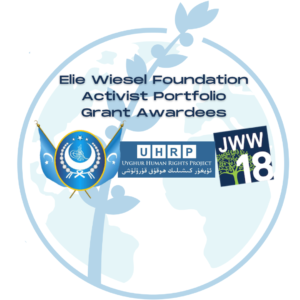It took 48 hours to get here, but we have finally arrived in Bukavu, the capital of South Kivu. JWW partners with various Congolese non-profit organizations here, all of whom we will be visiting over the next 4 days. We partner with Panzi Hospital in helping rape survivors who have been isolated from their families re-start their lives; we partner with organizations helping build new leaders for a healthier Congo in the future; and we partner to bring rape recovery care to thousands of rural women who have never before had access to medical care at all. We will also be meeting with organizations with whom we hope to forge new partnerships to serve the population of recently liberated child soldiers. We will be writing about all of these experiences in upcoming blog posts, so be sure to stay tuned.
Despite the fact that this is my fourth trip to this region, I never cease to be saddened that Congo, a country with tremendous beauty and natural resource wealth which could have made it one of the wealthiest countries in the world, remains one of the most impoverished countries in the world; according to the World Health Organization, more than 75% of the country’s population falls beneath the international poverty line. In the Kivu provinces where JWW does its work, the poverty rate exceeds a shocking 85%. And, like in most countries, the burden of poverty falls disproportionately on the female population. In the Kivus, because of the extremely high incidence of rape, the poverty problems are exacerbated by the rejection and stigmatization of rape victims and by the lack of available medical, economic and psycho-social services
Our JWW work here in Congo has both short term and long term impacts. Of course, in the immediate sense, our goal is to provide assistance to those who have been brutally abused by rape and war. We do that by providing medical treatment, educational assistance, and paths to economic independence. The longer term goal is to support efforts by local organizations to create a new norm in Congolese society–a norm which, first and foremost, changes what is currently the low status of women and creates a system of accountability for rape, for child abduction, and other crimes.
Last week, in anticipation of this trip, an acquaintance who heard I would be visiting Congo asked me whether I thought JWW was really making a difference. Without waiting for my answer, he went on to say that he believed that all of the projects that Western organizations bring to places like Congo offer only bandaids and not real solutions. Had he given me the courtesy to respond, I would have told him that JWW does not “bring” projects to Congo; rather, we travel to Congo to meet with Congolese who are developing projects which they believe will help rebuild their society which has been ravaged by foreign and internal wars, corruption, and greed.
Inherent in every program that we fund there is a long term strategy to create a positive impact on this evolving country emerging from hundreds of years of exploitation by foreign and domestic powers. And yes, we hope, that in every program there are bandaids to stop the immediate bleeding. Sometimes the so-called bandaid is a fistula repair surgery restoring intestinal, urinary tract, and gynecological function to a woman who has been repeatedly violated by platoons of militiamen, and sometimes that bandaid is providing a place for a liberated child soldier to go school or to learn how to re-enter society after the trauma of abduction and forced service. Bandaids come in all shapes and sizes in Congo.
Over the next few days we will describe the impact of the work we are doing on the people to whom services are being delivered.
The Talmud teaches us that the fact that we cannot completely solve an entire problem does not absolve us from doing what we can towards helping in some way. This ancient wisdom guides the work of Jewish World Watch. With a full heart we continue this journey, knowing that we fulfill our mission as Jews and as human beings to be part of repairing the brokenness in our midst. The words of an Auschwitz survivor with whom I spoke a few years ago resonate with me as we travel in Congo this week; he told me that there were many times during the Holocaust that a simple piece of bread or a blanket would have been enough to save the life of those who perished at Auschwitz. Those words, above all, validate the work we do and are the perfect response to those who discount the import and power of bandaids.


